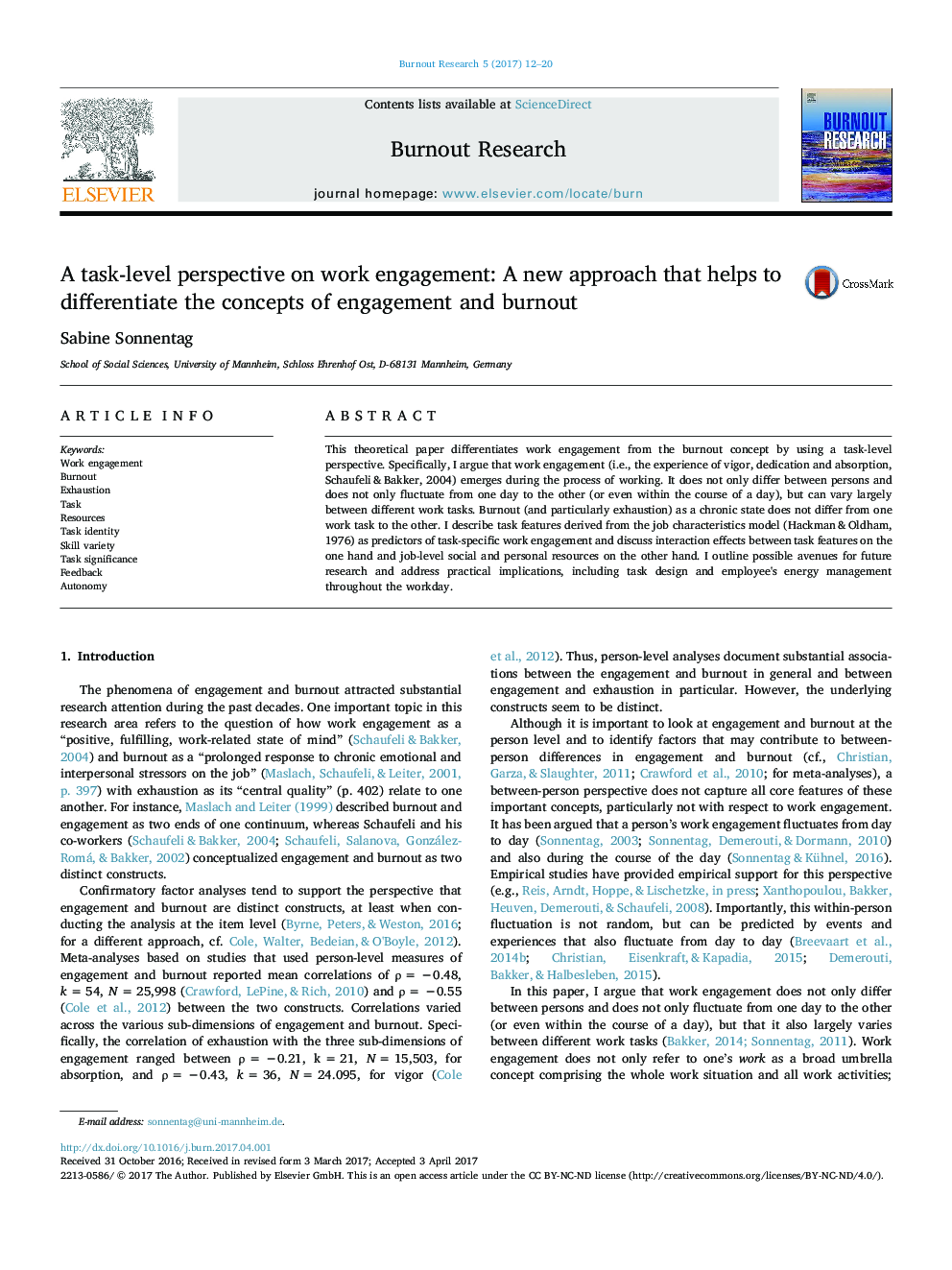| Article ID | Journal | Published Year | Pages | File Type |
|---|---|---|---|---|
| 4930038 | Burnout Research | 2017 | 9 Pages |
â¢Work engagement emerges during the process of working, whereas burnout is a chronic state in which people come to work.â¢Work engagement varies from task to task, whereas exhaustion does not fluctuate substantially from task to task.â¢Work engagement can be predicted by task features.â¢Social and personal resources interact with task features when predicting work engagement.
This theoretical paper differentiates work engagement from the burnout concept by using a task-level perspective. Specifically, I argue that work engagement (i.e., the experience of vigor, dedication and absorption, Schaufeli & Bakker, 2004) emerges during the process of working. It does not only differ between persons and does not only fluctuate from one day to the other (or even within the course of a day), but can vary largely between different work tasks. Burnout (and particularly exhaustion) as a chronic state does not differ from one work task to the other. I describe task features derived from the job characteristics model (Hackman & Oldham, 1976) as predictors of task-specific work engagement and discuss interaction effects between task features on the one hand and job-level social and personal resources on the other hand. I outline possible avenues for future research and address practical implications, including task design and employee's energy management throughout the workday.
